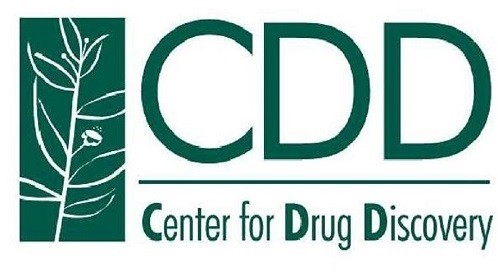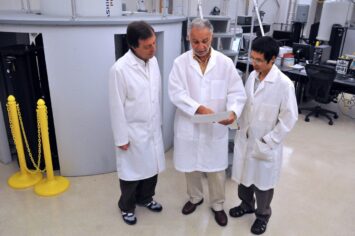
The Center for Drug Discovery synthesizes novel compounds to treat a diverse array of indications, from neurodegenerative illnesses to obesity and addiction. Our compounds have been instrumental in elucidating the structures and functions of the endocannabinoid system.
The Medicinal Chemistry Lab specializes in:
- Target-based drug design integrated with molecular modeling
- Lead optimization
- Development of robust synthetic procedures for scale-up
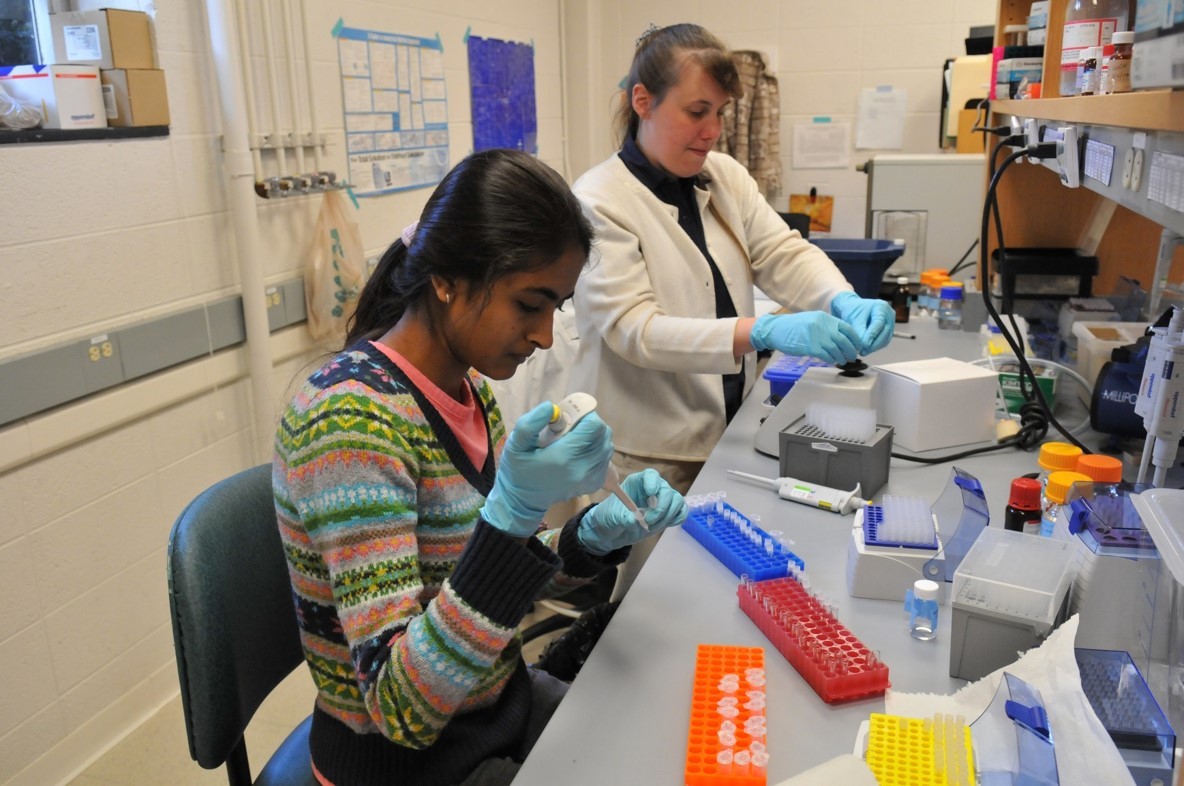
The CDD designs and implements biochemical assays to test its novel compounds in vitro and invivo, employing analytical methods such as mass spectroscopy, radiometrics, fluorometrics UV and HPLC.
The Biochemistry lab specializes in:
- In vitro compound profiling
- Assay development for enzyme substrates and inhibitors, receptor binding, and functional characterization
- Target (receptors, enzymes) profiling: cloning, expression, purification, Ligand Assisted Protein Structure (LAPS) analysis, LC/MS/MS characterization
- Drug bioavailability, pharmacokinetics, and metabolism; proteomics, metabolomics using LC/MS/MS
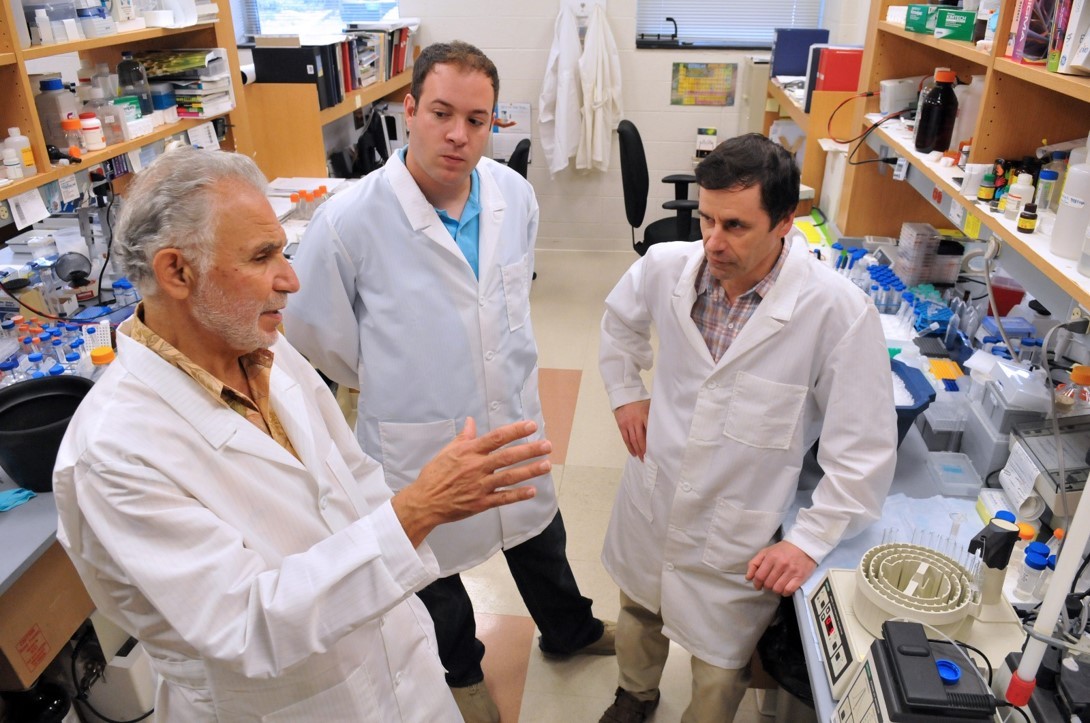
The goal of Biophysics at the CDD is to understand the molecular details concerning Ligand-Receptor interactions. This is accomplished by expressing and purifying the fully functional, wild type target proteins and strategic mutants. Our approach combines experiments, such as Mass Spectrometry, NMR spectroscopy and X-Ray crystallography, with biochemistry and chemistry to define factors affecting ligand binding and functional outcomes.
The Biophysics Lab specializes in:
- Solution and solid-state NMR-based protein structure
- Computational models for ligand design
- Analysis of drug-membrane interactions (Drug transport/diffusion)

The CDD’s Behavioral Pharmacology Laboratory plays a key role in understanding complex in-vivo effects of novel cannabinergic ligands using various rodent models. The major focus of lab is exploring novel cannabinoid agonists and antagonist for their beneficial therapeutic effects. Our lab is also dedicated in finding new pharmacological approaches to treat substance addiction.
Headed for over a decade by the late, esteemed Dr. Torbjorn Jarbe, the behavioral pharmacology laboratory specializes in:
- Drug discrimination in rodent models
- Locomotor activity, body temperature and balance (beam walking, rotorod), and taste aversion studies
- Schedule maintained responding
- Analgesia studies
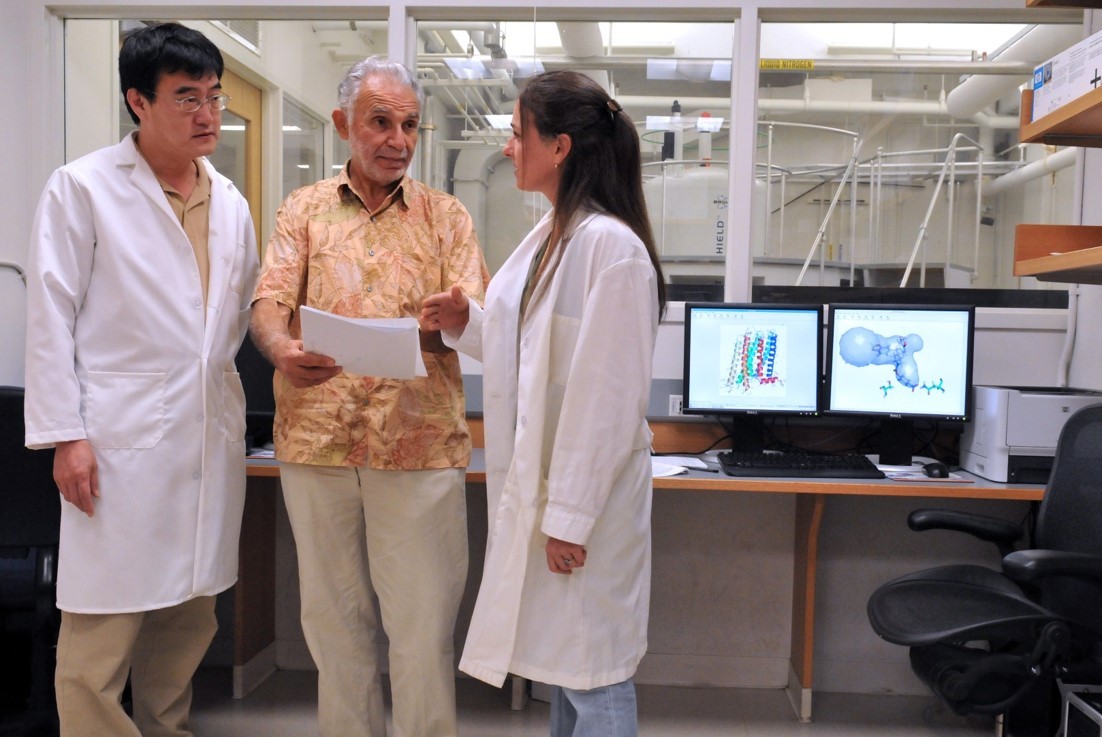
The Molecular Pharmacology and Medicinal Chemistry Laboratory at the Center for Drug Discovery conducts target structure-based drug synthesis and characterization of drug affinity and function at the target. The targets include cannabinoid and serotonin G protein-coupled receptors.
The Molecular Pharmacology lab specializes in:
- GPCR structure-based design and medicinal chemical synthesis of drug candidates targeting serotonin, muscarinic, and histamine receptors for treatment of neuropsychiatric (schizophrenia, addiction, binge eating, and other impulsive behavioral disorders), neurodevelopmental disorders (autism, fragile X, and related), and neurodegenerative disorders (Alzheimer’s and Parkinson’s disease)
- Molecular pharmacology studies delineating canonical and alternative signaling pathways of serotonin, muscarinic, and histamine receptors
